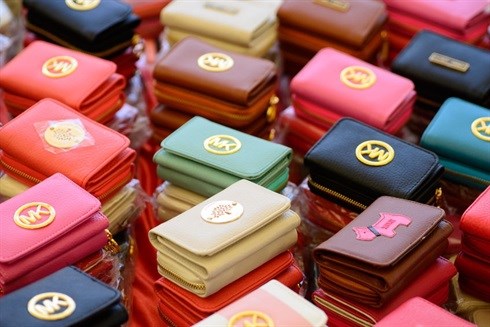Counterfeiting is causing brand dilution, job losses and irreversible damage to global economies. Described as "the crime of the 21st century," it has become a lucrative underground business around the world.
The counterfeiters' modus operandi is to manufacture goods (such as shoes, caps and t-shirts), often of an inferior quality, and use others' intellectual property rights (such as Nike's Swoosh device trademark) on goods without the proprietor's permission, thereby causing consumers to believe that what they are buying is a genuine product.
The sale of counterfeit goods is a massive concern for businesses worldwide.
The EU Observatory on Infringements of IP Rights recently reported that counterfeiting accounts for an estimated €26.3 billion of lost revenue annually (9.7% of sales) and has caused over 518,000 direct and indirect job losses. Due to the popularity of these brands, counterfeiters target well-known brands such as Nike, Converse and GHD.
However, it is not only well-known brands that are vulnerable - in 2013, it was reported that over 1000 brands worldwide had fallen victim to counterfeiting. All businesses and proprietors of intellectual property, big and small, should be aware of the legal measures available to combat counterfeiting.
In South Africa, the Counterfeit Goods Act (CGA) is the principal legislation dealing with counterfeit goods. The CGA provides mechanisms for proprietors of registered trademarks, copyright and marks protected by the Merchandise Marks Act to take speedy and effective action against persons who are suspected of dealing in counterfeit goods, on both a civil and criminal basis.
Dealing covers wide range of activities
In terms of the CGA, it is an offence to deal in counterfeit goods. "Dealing" covers a wide range of activities and includes selling, manufacturing, producing and exporting counterfeit goods. The CGA allows brand owners who suspect someone of dealing in counterfeit goods - to lay a complaint with an inspector (including a police official holding the rank of sergeant or higher or the Commissioner for Customs and Excise). An inspector has wide-ranging powers to tackle counterfeiting activities, including seizing and detaining the counterfeit goods.
Persons found guilty of dealing in counterfeit goods can be fined up to R5000 - for each infringing article or a maximum of three years imprisonment, or both (for a first time offender). Owners of registered trademarks, copyright owners, and owners of marks protected by the Merchandise Marks Act works may also apply to the Commissioner for Customs and Excise to seize and detain suspected counterfeit goods being imported into South Africa.
Registering trademarks is critical
In order to utilise the Counterfeit Goods Act, a registered trademark, copyright in a specific work (such as the artwork of the label on the packaging) or a mark protected by the Merchandise Marks Act is required. It is accordingly important to ensure that proprietors register their trademarks (brand names, logos etc) and keep a proper record of the ownership of copyright in works, in order to be able to act swiftly and effectively against counterfeiters. The CGA does not apply to other intellectual property rights such as patents and designs.
Design applications to protect packaging
Apart from the legal measures provided by the CGA, proprietors can protect their packaging against counterfeiting by obtaining a registered design covering their packaging, by filing a design application. Registered designs afford protection for the novel appearance of packaging articles such as bottles for a beverage or perfume, or containers for holding and packaging a proprietor's goods. It may be possible for the proprietor of a registered design to obtain an interdict against a counterfeiter and/or a court order authorizing seizure of goods supplied by the counterfeiter, which infringe the registered design.
Furthermore, the filing of one or more patent applications can protect any new and inventive invention relating to a proprietor's packaging. If a proprietor has a patent covering its packaging, it may be possible to deter counterfeiters by obtaining an interdict against a counterfeiter and/or a court order authorizing seizure of goods supplied by the counterfeiter, which infringe the claims of the proprietor's patent.
It is important to consider the filing of registered design and patent applications before disclosing the inventions or designs to the public in any way. To avoid becoming the next victim of 21st century crime, a proprietor should ensure that all intellectual property is secured by trademark, patent and design applications where applicable.

































